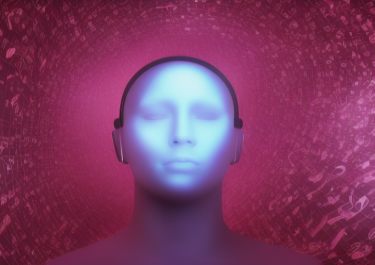
The music industry has always been a highly creative space, but recent advancements in technology have opened up new possibilities.
Artificial Intelligence (AI) is one of the most exciting new technologies that has the potential to transform the music industry. In this blog post, we’ll explore some of the ways that AI is already helping the music industry and how it might help in the future.
Music Composition
One of the most exciting applications of AI in the music industry is the ability to compose music. AI models can learn from existing compositions to generate new pieces of music. One such tool is Amper Music, an AI-powered music composition platform that allows users to create custom music pieces quickly and easily. The tool uses algorithms to create music based on the user’s preferences, including genre, tempo, and mood. By incorporating AI-generated music, artists can significantly reduce the time and resources required to create new compositions.
AI in Music Production
The production process is essential in the music industry, and AI can be used to streamline this process. AI models can identify the different components of a music piece, including melody, lyrics, and rhythm, and then analyze these components to improve the overall sound quality. Landr is an AI-powered music mastering platform that can analyze a track’s frequency, dynamics, and tonality to improve its sound quality. The platform can also make recommendations to improve the track’s overall sound and loudness. Furthermore, AI-powered tools can automate the mixing and mastering process, making it easier and faster to produce high-quality music.
AI in Music Recommendation
Music recommendation systems have been around for quite some time, but AI-powered systems can take it to a new level. Spotify’s music recommendation system is powered by AI algorithms that analyze the user’s listening habits to provide personalized recommendations. The system also takes into account other factors, such as user-generated playlists and community listening trends, to improve its recommendations. This means that users can discover new music they are more likely to enjoy, leading to better user experiences.
AI in Music Copyright Protection
The music industry has always struggled with copyright infringement issues. AI-powered systems can help identify and flag cases of copyright infringement more effectively. Audible Magic is an AI-powered music recognition and copyright protection platform that can identify instances of copyright infringement on social media, streaming services, and other online platforms. The platform can also provide reports and take-down notices to protect the rights of copyright holders.
Live Performances
AI can also be used to enhance live performances, making them more interactive and engaging. AIVA (Artificial Intelligence Virtual Artist) is an AI-powered virtual artist that can create and perform music in real-time. The platform uses AI algorithms to analyze the mood and energy of the audience and adjust its performance accordingly to create a more engaging experience. Additionally, AI can be used to create visual displays or lighting effects that synchronize with the music.
Bottom Line
AI is already bringing significant changes to the music industry, and it is expected to bring more significant changes in the future. From music composition to music production, recommendation systems to copyright protection, AI is transforming the way music is created, distributed, and consumed. As technology continues to advance, we can expect even more exciting applications of AI in the music industry. AI has the potential to unlock new creative possibilities, making it easier for artists to create and share their music with the world.
This blog post was fully generated by artificial intelligence (Yes… the image too!),


